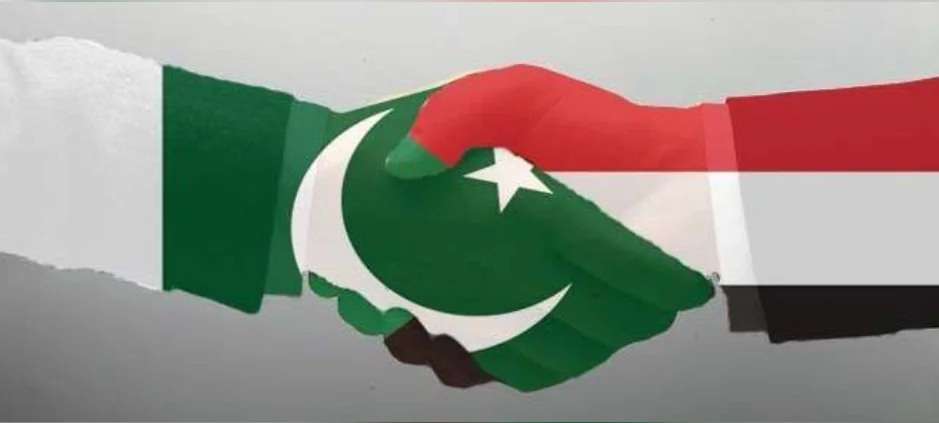The UAE has become a key external player in Pakistan, using a complex strategy of economic, political, and cultural influence. Rather than direct intervention, its strategic engagement with Pakistan is centered on economic dependencies, elite capture, infrastructure investments, and religious soft power. This arrangement, while having implications for Pakistan’s sovereignty, carries broader significance as a model of strategic entanglement.
Economic leverage through labour and remittances
Around 1.5 million Pakistani workers live in the Emirates, making remittances vital for Pakistan’s economy—over $7 billion were sent in 2024, with $4.1 billion in March 2025 alone. The UAE has leveraged this dependence by imposing visa restrictions on ‘low-skilled’ workers to express political discontent or push for policy changes in Islamabad. These restrictions often coincide with moments of Pakistani assertiveness, compelling the government to adjust its labour export strategy to satisfy Emirati demands, underscoring the UAE’s considerable influence.
Economic integration and infrastructure control
The UAE has transformed from a key trading partner to an economic powerhouse. In 2023-24, bilateral trade reached $5.6 billion, but the relationship is skewed: Pakistan mainly exports low-margin goods while importing high-value items from the UAE. During the pandemic, UAE companies profited from inflated vaccine sales to Pakistan, highlighting this imbalance. Additionally, Emirati interests in acquiring stakes in Pakistan International Airlines, Karachi port terminals, and the digital economy reflect a broader strategy of creating dependencies beyond traditional trade.
Infrastructure imperialism and sovereignty arbitrage
The UAE’s strategy to acquire key infrastructure and real estate in Pakistan exemplifies ‘sovereignty arbitrage’. By controlling vital economic assets, the UAE can sway policy decisions without formal political power, using contracts and investments to make the loss of sovereignty nearly invisible to the public.
Elite capture and asset leveraging
Pakistani elites own about 23,000 properties worth $11 billion in Dubai, many of which are undeclared in Pakistan. The UAE’s refusal to share asset data with Pakistani authorities, despite existing tax treaties, gives it prosecutorial leverage over influential Pakistanis. This silent threat of exposure or economic reprisal ensures compliance from Pakistan’s leadership, allowing the UAE to shape policy outcomes without direct interference.
Political intervention by indirect means
The 2022 removal of Imran Khan, often attributed to U.S. pressure, also involved significant Emirati influence. Khan’s independent foreign policy and anti-corruption stance threatened Gulf interests, prompting the UAE to act. The swift suppression of protests by Pakistani expatriates in Dubai and warnings from diplomatic missions illustrate the UAE’s control over the diaspora. The subsequent realignment of Pakistani policy under Shahbaz Sharif, especially concerning Gulf security priorities, attests to the effectiveness of this approach.
Military and security alignment
The UAE maintains deep institutional ties with Pakistan’s military, offering post-retirement benefits such as luxury properties and board positions in Emirati defence firms. These incentives foster a pipeline of pro-Gulf sentiment within Pakistan’s security establishment, aligning its priorities with those of the UAE and embedding Emirati influence across generations of military leadership.
Strategic ambiguity in Balochistan
While investing in development projects in Balochistan, the UAE also maintains connections with Baloch separatist groups, providing leverage over both Pakistani authorities and regional actors like China and Iran. This dual-track engagement internationalises what Pakistan considers a domestic issue, transforming Balochistan into a geopolitical prop for control, thus further constraining Pakistan’s sovereignty.
Religious soft power and cultural influence
Emirati-funded religious institutions and media promote a ‘moderate Islam’ that emphasises political passivity and respect for authority, targeting influential Islamic movements. Groups like the Deobandis, Jamaat-e-Islami, and other movements that combine religious fanaticism with political mobilisation capability represent the greatest threat to the Gulf’s preferred political order. By supporting non-political Sufism and state-aligned clerics, the UAE is reshaping Pakistan’s religious landscape to enhance its regional power. Scholarships, financial incentives, and media partnerships further align Pakistani religious leaders with Emirati views.
Foreign Policy realignment
Following the Abraham Accords, the UAE has subtly influenced Pakistan’s foreign policy, particularly regarding Palestine and Kashmir. Official rhetoric has softened, and economic channels between Pakistan and India have quietly reopened with Emirati facilitation. Access to Gulf markets and labour visas is increasingly tied to diplomatic flexibility, leading Pakistan’s policymakers to self-censor and moderate their traditional stances due to possible economic consequences.
Influence through State-sponsored NGOs
The UAE Pakistan Assistance Program (UAE-PAP) has funded infrastructure, education, health, and water projects across Pakistan, particularly in sensitive areas like Swat. Other organisations, such as the Khalifa Bin Zayed Al Nahyan Foundation, Zayed Bin Sultan Al Nahyan Charitable and Humanitarian Foundation, and Emirates Red Crescent, deliver emergency relief, healthcare, and social welfare projects. These NGOs embed Emirati presence in critical sectors, reinforcing the UAE’s role as an indispensable partner and stakeholder in Pakistan’s development.
Conclusion
The UAE’s influence in Pakistan showcases a modern geopolitical strategy. By leveraging economic power, aligning militarily, and exercising religious soft power, the UAE has created dependencies that restrict Pakistan’s autonomy while letting it preserve its façade of sovereignty. This model illustrates how smaller, resource-rich states can shape the actions of larger, dependent nations in the 21st century, reflecting a shift towards more sophisticated methods of international influence.

